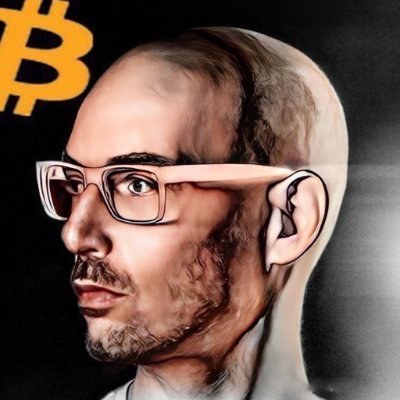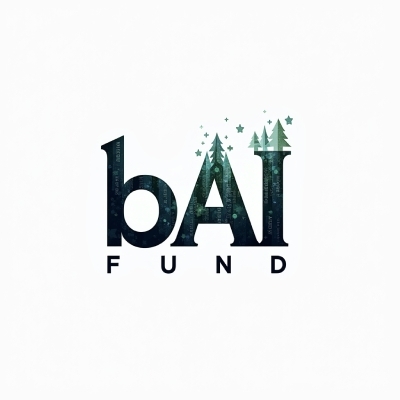BlackRock CEO Warns of Dollar Decline as Bitcoin Gains Global Appeal
BlackRock CEO Larry Fink has warned that the continued deficit is threatening the US dollar’s dominance. In his annual letter , Fink said that if government spending is excessive, the dollar is likely to be challenged by Bitcoin and other cryptocurrencies.
Fink states that the national debt has grown at a rate that is threefold the rate of the GDP since 1989. He pointed out that in 2024, interest payments on America’s debt are set to cost over $952 billion, a figure that is way past what America spends on defence. He further predicts that mandatory expenditures and debt services could consume all the federal revenues by 2030, meaning the country will be in a permanent deficit.
Fink further pointed out that fiscal imbalance may directly crush investors’ confidence in dollar-based financial assets. He said that Bitcoin may gradually transition into being considered more as a store of value, reducing American financial power.
“If deficits keep on growing, America is in danger of losing this position to digital assets, such as Bitcoin,” Fink penned down.
While sounding warning bells on debt, Fink also reaffirmed his support for blockchain and tokenization of assets, which he sees as the future of finance. He also believes that every stock, bond, and mutual fund can be tokenized, streamlining the process, reducing costs, and paving the way to fractional investment.
Fink noted that tokenization has the potential to redefine older structures and create pathways to markets that were earlier limited to few, like Private Real Estate, Private Equity, etc. “Tokenization makes investing more democratic,” he stated. Fink affirmed and explained how blockchain could level the field for more participants.
BlackRock has already begun making these strategic plays. Their $1.9bn Institutional Digital Liquidity Fund, created together with Securitize, is the biggest tokenized US Treasury product to this date. The fund is designed to promote efficiency in public and private markets through increased transparency and the use of cash, treasuries, and repo agreements to fund the program.
Fink also expressed concerns over archaic finance-related infrastructure, stating that SWIFT is essentially “routing emails through the postal office.” According to him, blockchain will displace current systems as it will serve as the new infrastructure of the financial world.
Institutional demand for Bitcoin is still growing rapidly. As CNF earlier reported , BlackRock launched its own Bitcoin ETF, IBIT, which managed over $50 billion in assets within a year. Fink admitted that such momentum indicates growing market confidence in Bitcoin as an investment instrument.
Despite this, Fink supports decentralised finance but with some concerns. He argued that tokenization and DeFi can only become truly effecting if regulated. Some of the problems include the issue of identity and operational issues.
“Markets do not become optimized such that everyone is provided the same level of services,” Fink stated, urging policymakers to adopt frameworks that ensure innovation does not outpace oversight. He called on regulators to support financial modernization while protecting market integrity.
Eric Trump calls Bitcoin a top store of value and a powerful hedge against real estate
US President Donald Trump’s son, Eric Trump, has reiterated his embrace of Bitcoin, calling it an excellent store of value and a strong hedge against real estate, an asset class he is deeply familiar with due to his background in construction and property development.
“I truly believe that Bitcoin is one of the greatest stores of value, immediately liquid, an unbelievable hedge against real estate,” Trump said in an interview with FOX Business Network (FBN) on Tuesday.
Trump also explained that he became interested in crypto after widespread banking cancellations targeting Trump’s family accounts without justifiable reasons.
According to him, these actions were politically motivated and part of a larger movement to target conservatives.
“I never thought I’d fall into the world of crypto until every bank started cancelling us for absolutely no reason whatsoever other than the fact that my father was in politics,” Trump said.
The experience led him to appreciate Bitcoin’s decentralized nature, which makes it resistant to censorship.
The Trump Organization executive is now involved in crypto ventures, including World Liberty Financial (WLFI) and American Bitcoin. American Bitcoin, the Bitcoin mining venture backed by Trump’s sons and Hut 8, just launched yesterday.
“American Bitcoin. I think it’s going to be one of the great companies out there. So I truly believe in it,” he said.
Discussing the DeFi venture, Trump expressed confidence in its future success, stating, “It’s doing phenomenally well.” Last week, WLFI announced the launch of its stablecoin , USD1. The announcement came after the team successfully raised over $550 million through token sales.
Regarding crypto regulations, Trump stressed the need for clearer guidelines in the industry, noting that “everybody wants guidelines” and that the US needs to maintain leadership in the space.
“When we look out 10 years in this country, the nature of finance, the nature of banking is going to be very, very different than it is today,” Trump said, adding that blockchain technology can execute banking functions “better, cheaper, more efficiently, faster” than traditional institutions.
Trump also expressed support for US stablecoins, citing a study showing low European interest in euro-based stablecoins. “I really actually think that US stablecoin saves the dollar in a very big way,” he said.
Trump recently joined Metaplanet’s Strategic Board of Advisors. The appointment was seen as part of the company’s ongoing efforts to become a leading entity in the Bitcoin economy.
Not just Bitcoin, Trump’s son is also bullish on Ethereum. In an X post in February, he encouraged investors to accumulate more Ether .
The token is currently trading at around $1,900, down nearly 30% since his post.
South Korea’s Crypto Users Just Beat Stock Market Investors
Who would have thought, the crypto market in South Korea has now surpassed the stock market in terms of the number of users. Based on the latest data as of the end of February 2025, the five major virtual asset exchanges in the country recorded a total of 16.29 million user accounts, according to SBS .
This figure represents around 32% of the total population of South Korea and exceeds the number of stock investors, which is currently at 14.1 million.
Indeed, that number includes duplicate accounts from users who have more than one account on various exchanges. But still, this surge makes the stock market look a bit quiet, at least from the perspective of the digital generation.
Usually, the crypto world is considered a playground for young people. However, a report from the CNF presents a different view. More than 9.6 million South Koreans are now investing in crypto, an increase of more than 50% compared to the previous year. And interestingly, one in four of these investors is over 50 years old.
In fact, many of them hold large crypto asset portfolios. Just imagine, the grandfather who is usually busy playing chess in the park, may now be monitoring the Bitcoin chart on his tablet.
Furthermore, a report from Despread Research shows that around 70% of crypto investors in South Korea made a profit throughout 2024.
The assets that dominate their portfolios are Bitcoin (BTC), XRP, and Ethereum (ETH). Optimism continues to soar because 75% of them believe that the price of Bitcoin will break through $100,000 in the near future.
No less interesting, it’s not just the general public who are interested in crypto. The South Korean Government’s Public Ethics Committee revealed that 411 of the 2,047 public officials are recorded as having crypto assets.
The value is not small, around 14.4 billion won or equivalent to $9.8 million. The average ownership per official reaches 35.07 million won, around $23,927.
However, the government has not remained passive in response to this surge in interest. South Korea has begun to tighten supervision of unregistered foreign exchanges.
A total of 17 foreign crypto exchange applications, such as Poloniex, KuCoin, and MEXC, have been blocked from the Google Play Store at the request of the FIU (Financial Intelligence Unit). The main reason? To protect local investors and prevent illegal activities such as money laundering.
On the other hand, the government’s next plan is to start regulating cross-border crypto trading activities. This regulation will be implemented starting in the second half of 2025.
Later, all business entities that conduct cross-border transactions with virtual assets are required to register and report to the Bank of Korea every month. Maybe it’s time for this “digital money” to be treated like real money, especially with a turnover of no less large value.


 最低価格
最低価格 最高価格
最高価格 
















































